Information Dissemination
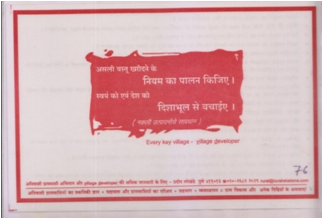
|
Volunteering initiative
|
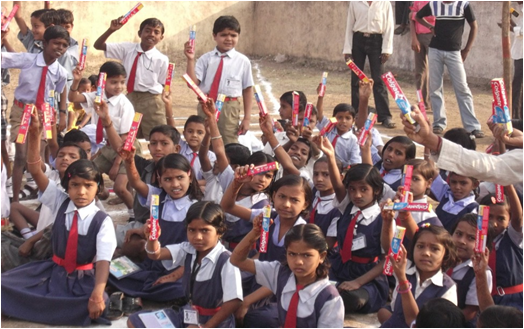
|
Oral Education Programate
|
 |
Financial Literacy
|
Network extension

|
rural entrepreneurs
|

|
rural associates
|
 |
Empowering rural youth
|
 |
Network extension
|
 |
Driver to entrepreneur
|
Academic
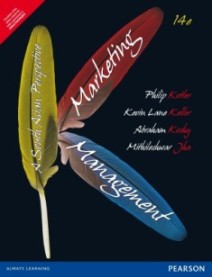
|
Cultivating customer relationships – Case study in Philip Kotler’s book on Marketing Management For marketers who target a large customer base, as is the case with FMCG marketers, it is unviable for a single company to build one-to-one relationships with customers. One organization, rural relations, started the business of networking with villagers, developing direct contact with people in a large number of villages in 10 states in India. This organization provides an array of services on commercial terms, such as subscription-based information about rural markets, product sampling, franchisee identification, lead generation, customer profiling, direct mailing, recruiting and training of people from rural areas and media, public relations, and on-ground activities. Many companies in FMCG sector utilize this specialized knowledge they want to communicate directly with some of the constituencies in villages. As an example of one such activity, rural relations wrote to a large number of people in villages that act as feeder markets to other rural markets about hygiene health, and oral care. When villagers sent their queries, it provided hand-written replies to each of them. The relationships built by rural relations in these villages are leveraged by FMCG majors when they introduce new products or they are re-launch existing brands. While undertaking such campaigns, rural relations collects feedback and provides hand-written replies to any queries, which help in strengthening the relationship further. Image source- Google |
rural relations: A Socially-Driven CoA case study in Economics Times by:
Pradeep Lokhande – The Person
Born in Wai, a small province in the state of Maharashtra, Pradeep hailed from a family of modest means. He studied in Wai, and barely managed to finish his schooling. He managed to scrape through all his examinations, with bare minimum pass marks and was consistent in his academic performance till he graduated. After graduation, Pradeep moved to Pune to stay with his uncle in a joint family. His uncle ran a cafeteria, where he first started working. After work he rearranged the furniture there, made himself some space and slept there on most nights. During the day, he would serve tea in the neighboring “Officers Club”. He was awed looking at the respect the officers commanded from the visitors who dropped in at the club. Watching the officers, he had his first big dream – becoming a “saheb” (a gentleman) himself one day. He was simply in admiration of their professionalism, work, stature and social respect that they commanded. He wanted to be addressed as “sahib”, count bundles of currency and own a car with bright red and yellow tail lamps! He wanted to be able to share a cup of tea with these officers one day. Pradeep always knew that desire; dedication and effort were the three key ingredients to success, and the stint at officer’s club made him realize the importance of education as the fourth one. In pursuit of his dream, he enrolled himself in a distance education program specializing in marketing. To garner practical experience, he convinced a friend’s father who had a business selling paper tissues to allow him to market them. On completing his diploma, he was selected during the campus placement process by Johnson & Johnson Company to market their products in Madhya Pradesh. This being his first stint with corporate, Pradeep wanted to do his best. He knew he had a big dream, only the vision and the characters in his dream were hazy. He had to gain a lot of practical experience and a feel of the markets to be able to understand business. He travelled extensively in Madhya Pradesh and worked with J&J for one and half years. This gave him his grounding in marketing to rural areas. Over the course of his stint with them, he managed to save INR 45,000. With this accumulated capital, he decided to start his business. He took up the distribution of bakery items in Pune with a couple of friends. He would pick up the baked stuff from the distributors and would drive the tempo truck himself carrying and selling stock to the retailers. He toiled from eight in the morning till late in the night. All this hard work fetched him at the end of the month a net return of INR 10,000. His friends who were his partners in the business were not interested in such low returns and withdrew. His first attempt at starting a business on his own had failed. He chanced to attend a lecture delivered by a Director of a foreign bank who opined that the future of business lay in rural India and that the potential was almost limitless. This set him thinking and a germ of an idea grew in his mind. What if he could run a business with rural India as its target market while at the same time contributes to its development. His initial thoughts were unclear on how to go about it. One thing he was sure of – he would help the rural youth of Maharashtra, who had stars in their eyes and yearned to be successful. He would try to inculcate good reading habits, expose them to computers and provide them with the opportunities and resources to make it a reality. He became a man possessed with that mission. He embarked on a journey of discovery to find out what makes rural India tick. Though he hailed from a village, he knew deep down that there was more to life than what meets the eye or what he has lived through. He wanted to know the essence and core of village life – its customs, traditions, cultures and mindset of the villagers. He personally visited 4000 villages across the country in his journey. He strived to understand the rural administration methodologies, local markets or the bazaar-haat systems and the education infrastructure and process. During his visits, he established direct contact with opinion leaders and started recording obscure details of the local economy. His journey of discovery exhausted all the capital that he had. He had to sell things from home to survive. Family and friends thought he had lost his mind, investing time and money to collect data from rural areas. Friends tried to dissuade him that this did not make any business sense, and that there was no future in it. rural relations – The Company rural relations is India’s largest relationship based communication organization with a very simple philosophy: touch, feel, learn and reach out to rural India. It is an organization that prides itself not just on the detailed information it has on villages but the relationships established with the rural opinion leaders – hence the name rural relations. The organization has a formidable presence across 10 states: Maharashtra, Madhya Pradesh, Chhattisgarh, Gujarat, Rajasthan, Uttar Pradesh, Uttaranchal, Andhra Pradesh, Karnataka and Tamil Nadu. Information gathering methodology Pradeep started with targeting villages with population between 2000 and 10000, where there were weekly ‘village fairs’ and ‘bazaars’. He started collecting information such as:
Pradeep would send in questionnaire postcards for which he was lucky to get scanty responses. This did not discourage him. Soon he sent 9000 postcards to other villages (Exhibit 1, 2 and 3). His wife and father would help him write the postcards and also to collect and classify the information. He received 20 responses from 9000 postcards. He repeated this exercise two times. He then sent Diwali greetings to 10,000 villagers with a reply card. This got him 800 responses, thereby confirming his belief that people in rural India believed in building lasting relationships. The rural market had to be approached with the mindset of establishing relationships rather than working on it as a business model. This revelation also prompted him to finalize the name of his organization as ‘rural relations’. Encouraged by the responses, he set out on his journey to collect information about rural markets first hand. His wife would enter all the data on an old computer. |
Other


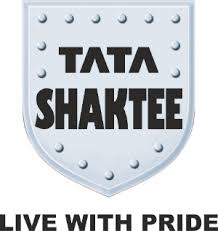









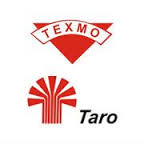





Other
- Funding agencies. Click here to download.
- List of Pharmaceutical companies. Click here to download.
- Pharmaceutical companies contacts. Click here to download.
- CSR projects by companies in rural India. Click here to download.
- Physical performance of rural roads. Click here to download.
- Rural household characteristics. Click here to download.
- International Post tariffs. Click here to download.
